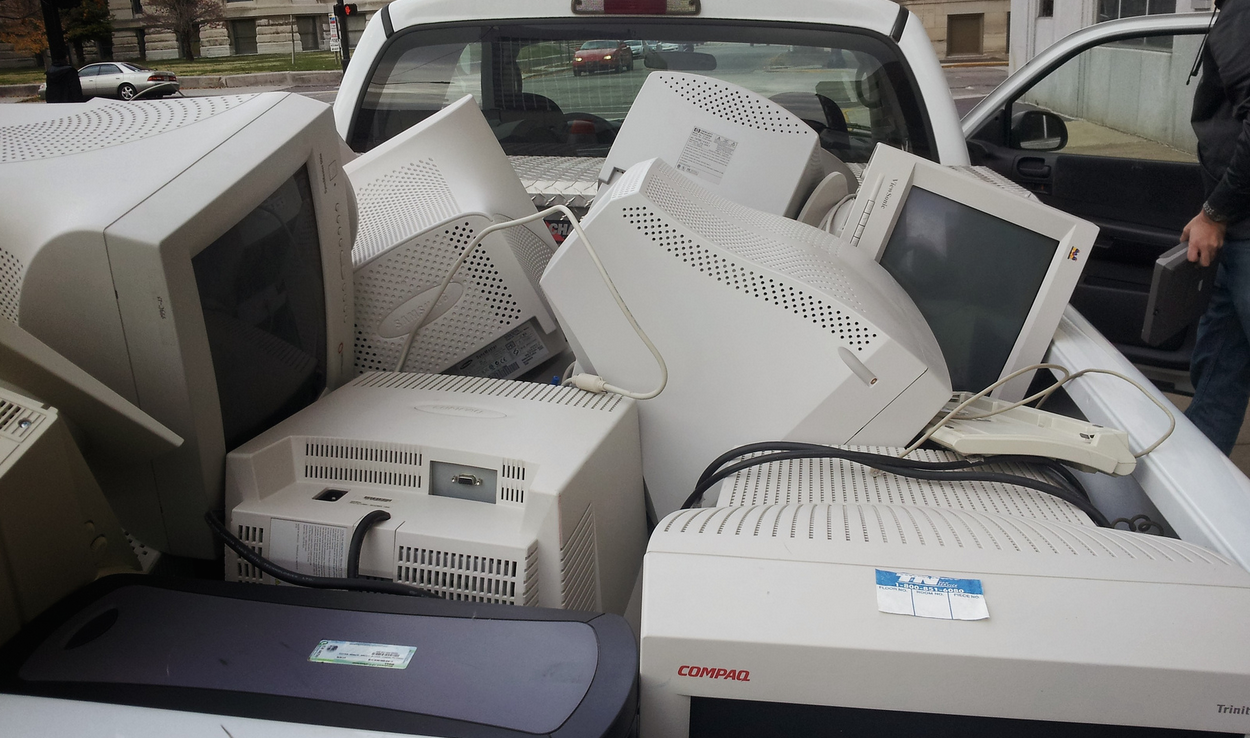Lawmakers Try Again To Make It Easier To Resell High-Tech Goods
At the core of the “You Own Devices Act” (yes, that spells YODA) introduced by Rep. Blake Farenthold of Texas and co-sponsored by Rep. Jared Polis of Colorado, is the Doctrine of First Sale, which effectively gives consumers the right to do whatever the heck they want with the things they buy.
That’s why you could walk into just about any music or video store 10 years ago and sell and/or buy used CDs and DVDs, or why there is still a thriving used book market.
But at the same time there is currently no legal way to resell those mp3 files you bought five years ago or that e-book you purchased last month and only got halfway through because it’s awful. Not only are there concerns that you might retain the original, you also likely don’t own that content but have instead just paid a licensing fee.
And this software licensing angle is already being used by some companies to restrict the resale market of devices. Want to buy that used copier from the business that went bankrupt down the street? You may have to pay a fee to recertify the software.
Or you can get a good deal on some used HP servers, but you’ll have to pay a $400 Software License Transfer “cost recovery fee” because the person selling you that server never owned the software.
Under the YODA proposal, existing law would be amended to clarify that “first sale doctrine applies to any computer program that enables a machine or other product to operate,” meaning if you buy a phone, printer, computer, thermostat, TV, or whatever — you’re also buying the software that’s included.
The proposed law would not in any way legalize unauthorized copies of software; just prevent manufacturers from claiming you can’t freely resell something you own because of a software license.
“As technology advances, more and more of the devices in your home, office, and garage contain essential software that make them run,” said Farenthold in a statement. “While this gives us great improvements like air conditioners that can be switched on or off from your phone, household lamps that you can remotely control or program, and speakers that play music as you change rooms, it also opens the door to software licenses that erode how much you own these devices and how you can dispose of them. YODA ensures that these devices are yours and you can sell them when you wish.”
This sentiment is echoed by Polis, who says that “For too long our antiquated copyright laws have been stifling innovation and blocking consumers from being able to access more efficient, effective, and affordable products and technology.”
If passed, YODA would have the most direct and immediate impact on businesses, as they are the ones most frequently stuck having to pay extra costs when selling or acquiring used electronics, but there’s currently little to prevent manufacturers from trying to exploit software copyright to nickel-and-dime consumers.
They certainly tried with the cellphone unlocking issue, convincing the Librarian of Congress to reconsider a long-held stance that consumers own their phones and the contents. The manufacturers wanted to control the lucrative secondary market for used phones by making it illegal for anyone other than them to unlock the devices.
In fact, an early version of the Unlocking Consumer Choice and Wireless Competition Act was scuttled after someone in Congress added language at the last minute that would have limited the unlocking of phones to individuals, leaving open the door for future restrictions on bulk unlocking. That would have allowed manufacturers to use copyright to outlaw an entire, currently legal, industry.
Farenthold first introduced YODA in 2014, but the bill did not make it before the rest of the House for consideration.
Want more consumer news? Visit our parent organization, Consumer Reports, for the latest on scams, recalls, and other consumer issues.


